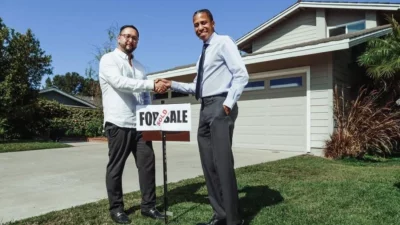Table of Contents
- Who Are Economic Policy Experts?
- Influencing Government Fiscal Choices
- Policy Analysis In Modern Governance
- Transforming Research into Actionable Policy
- How Economic Expertise Impacts the Public
- Notable Examples and Recent Developments
- Future Directions For Fiscal Expertise
Who Are Economic Policy Experts?
In the intricate world of public finance and government decision-making, economic policy experts bring forward the analytical firepower needed to navigate a maze of data, laws, and competing priorities. These professionals are often individuals who have developed a deep reservoir of knowledge through extensive research, academic work, and field experience. The path to becoming an economic policy expert is rarely linear, drawing from experience in government roles, universities, financial institutions, and international organizations.
For example, professionals like Peter Orszag Council on Foreign Relations, have demonstrated remarkable versatility across sectors, serving as faculty, overseeing budget offices, and providing executive-level advice. His career reflects the dynamic range of influence that economic policy experts can have in both public and private domains. These roles require not only subject matter expertise but also the ability to communicate complex ideas clearly to diverse stakeholders.
Influencing Government Fiscal Choices
The influence of economic policy experts in government circles is profound. From testifying before legislative bodies to advising heads of state, these experts help craft fiscal strategies that must withstand intense scrutiny. They bridge the gap between complex economic theory and the practical realities of governance. In times of economic stress, such as recessions or periods of high inflation, their input can be decisive for steering a nation toward stability and growth. As explained by Investopedia, fiscal policy refers to how governments use spending and taxation to influence the economy, a domain where expert analysis plays a pivotal role.
When governments face important fiscal decisions, such as whether to increase public spending or implement austerity measures, policy experts provide comprehensive forecasts, risk assessments, and scenario analyses. Their work is especially evident during crucial debates over budget deficits and tax reforms. Expert testimony and analytical reports have a significant influence on legislative discussions regarding spending limits and deficits in the U.S. Congress. By presenting data-driven insights, these professionals clarify the trade-offs involved in each option, helping governments avoid short-term solutions that could harm their long-term fiscal health.
Policy Analysis In Modern Governance
At the heart of effective economic governance lies robust policy analysis. This involves the use of quantitative and qualitative techniques to assess the likely impacts of new laws, spending projects, or regulatory rules. Economic analysts utilize advanced modeling techniques and big data analytics to analyze variables that impact everything from inflation and employment levels to interest rates and consumer demand. Their reports are seldom dry numbers—they highlight the practical realities that shape lives and livelihoods.
Today’s policy analysis often requires a multidisciplinary approach, incorporating insights from environmental science, public health, and technology. Economic experts might use cost-benefit analysis to evaluate major infrastructure projects, run sensitivity analyses to gauge how external shocks could ripple through national economies, or develop dynamic models that adjust to real-time data inputs. This ensures that governments make informed choices, not only based on past trends but also on potential future scenarios. The increasing complexity of global events, including pandemics and supply chain crises, has only underscored the importance of sound policy analysis.
Transforming Research into Actionable Policy
Despite the power of data and forecasting, the actual value of economic policy experts is realized only when research leads to effective action. Experts must communicate their findings to world leaders, legislators, and the public in clear, persuasive terms—even when the recommendations are complex or counterintuitive. This often requires a delicate balancing act: presenting nuanced findings without overwhelming non-experts with jargon or unnecessary technical details.
High-impact policy experts are adept at telling a story with data. They turn spreadsheets and econometric models into narratives that drive consensus and inspire political will. An evidence-based approach can transform abstract theories into headlines discussing new tax credits, changes to unemployment benefits, or shifts in monetary policy. These changes can influence election outcomes and redefine the trajectory of entire economies, especially when crises require rapid and bold intervention. By fostering trust and transparency, experts support both sound governance and public buy-in.
How Economic Expertise Impacts the Public
Sound fiscal policy does not just shape balance sheets—it directly impacts the daily lives of citizens. Through targeted tax credits, adjustments to minimum wage laws, or enhancements to welfare programs, economic experts endeavor to foster broad-based prosperity. For example, timely fiscal stimulus measures during recessions can keep families out of poverty, prevent widespread business closures, and speed economic recovery. Economics plays a central role in shaping government policy, offering tools to address unemployment, inflation, and income inequality.
Economic experts also dedicate significant effort to public outreach. By demystifying complex policy debates, they enable ordinary people to have a say in how resources are allocated. Transparent and accessible communication, from live interviews to interactive data visualizations, empowers communities to engage in dialogue, voice their opinions, and ultimately influence policy priorities. Some areas where expert-driven policy can create measurable change include:
- Increasing access to high-quality healthcare and education
- Bolstering job growth and economic security
- Developing strategies that cushion citizens from the effects of economic downturns and global disruptions
Notable Examples and Recent Developments
Over the last few decades, numerous economic experts have helped navigate nations through fiscal uncertainty, technology shifts, and global crises. While the specific names and faces change, the underlying principles—methodical analysis, openness to debate, and a drive to improve public welfare—remain. One can point to influential roles experts have played in shaping responses to financial crashes, devising pandemic relief packages, or engineering transitions to renewable energy economies.
For example, recent changes to student loan policy and debates over climate-related infrastructure spending have been marked by robust involvement from economic thought leaders. Their ability to aggregate evidence and advocate sensible reforms has helped advance legislation that will impact millions in both the short and long term. As history has shown, strong fiscal leadership can mean the difference between protracted stagnation and vibrant, inclusive growth.
Future Directions For Fiscal Expertise
As the 21st century unfolds, economic policy experts face an increasingly complex and uncertain landscape. Technologies such as artificial intelligence, cryptocurrencies, and global e-commerce networks are rewriting the rules of financial engagement. Simultaneously, challenges related to demographic change, environmental risk, and shifting labor markets necessitate the continual adaptation of policy expertise.
Moving forward, experts will need to prioritize flexibility, humility, and inclusiveness. Future fiscal policy demands an open ear to diverse perspectives, ensuring that innovation benefits not just the privileged but also those on society’s margins. By embracing ongoing education and cross-sector collaboration, the next generation of economic leaders can sustain prosperity, strengthen resilience, and encourage responsible stewardship of public resources. In this evolving role, the work of policy experts will remain central to confronting tomorrow’s fiscal challenges with creativity and wisdom.

Lexy Summer is a talented writer with a deep passion for the art of language and storytelling. With a background in editing and content creation, Lexy has honed her skills in crafting clear, engaging, and grammatically flawless writing.



